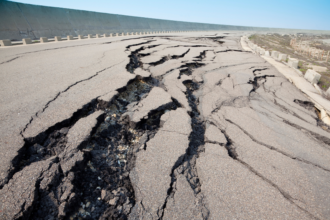Germany is being inundated politically from a tidal wave. Strongly believing it is changing the political scene of Germany, the hard-right nationalist Alternative for Germany (AfD Germany) party Opposed, Germany’s internal intelligence service labels as “radical,” “racist,” and “anti-democratic,” even classifying the party as “anti-constitutional.”
Polls show that the AfD Germany is likely to rank second among political forces in Germany going forward, notwithstanding these charges. Should these forecasts come true, Europe will undergo a momentous change not only inside Germany.
Populist right-wing parties have been gathering steam all throughout the continent. Inspired by Donald Trump and embracing his “anti-woke,” tough-on-migration, and pro-fossil-fuel posture, the AfD Germany They support stopping armament shipments to Ukraine and giving de-escalation with Russia first priority, much as Trump does Many Germans have been offended by the Trump government’s openly supporting of the AfD.
Is Germany Ready for the Far-Right to Grow?
For decades, popular wisdom was that Germany’s sinister past shielded it from any major flirting with the extreme right. But the political environment of today points differently. Viewing the AfD Germany’s ethono-nationalist reputation as too extreme, even Marine Le Pen, France’s powerful opposition leader whose party is likewise seen as far-right, has distance from the AfD Germany.
The AfD Germany fiercely disputes its “extreme” reputation. But for the first time in Germany following war, a hard-right party is poised to become a challenge to the Federal Republic and its liberal constitution.
Does Germany's economic model break?
Germans have experienced a loss in their national self-image and standing abroad. For years, they took great satisfaction in becoming the economic powerhouse of Europe, embodied by the sentence Vorsprung durch Technik—”progress through technology.” But now basic defects in the German economic paradigm have become clear.
Germany is struggling in a time of technological progress since it depends on energy-intensive businesses including chemical manufacturing and combustion-engine autos. Critics contend that the nation lags because big tech, artificial intelligence, and research are underfunded.
Under Angela Merkel’s sixteen-year leadership, the situation worsened as Germany grew more reliant on three fundamental components:
- China Exports
- cheap Russian gasoline
- The defensive umbrella of the United States
These pillars are now collapsing. The United States has said that Europe cannot rely on American security assurances any more. China has jumped ahead in electric vehicle technology, therefore lowering the demand for German imports. And Germany was obliged to look for expensive substitute energy sources after Russia invaded Ukraine.
The outcome is: a slow economy revealing Germany’s weaknesses and aggravating European friends.
Why is Germany's defense failing?
Germany’s military readiness—or lack thereof—has grown to be a major issue for a crucial NATO member. Following Russia’s full-scale invasion of Ukraine, Chancellor Olaf Scholz promised Germany’s depleted military a Zeitenwende, or turning point. However, estimates indicate the military is less battle-ready now than it was three years ago, largely because of significant military contributions to Ukraine.
Although most political parties support helping Ukraine, the AfD Germany stands differently. On their demonstrations, the word “peace” rules the banners. They demand an immediate stop to military aid to Ukraine and support shifting funds to bolster Germany’s armed forces for internal security.
Is the infrastructure of Germany disintegrating?
Germany boasts more than 4,000 documented damaged bridges among its population. Years of constant underinvestment have quietly caused the infrastructure of the nation to fall apart. Reportedly worse than in the UK, train punctuality is appalling. Digitalization lags greatly; spotty mobile connectivity and reliance on antiquated fax machines outside of big cities reflect this.
Still, the government has tight constitutional spending constraints even if it chose to invest more. Except in national crises, the debt brake—introduced following the financial crisis of 2008-09 restricts fresh debt at 0.35% of GDP. Originally considered as the pillar of financial stability, many today see it as a barrier to economic development.
Sunday’s unexpected election resulted from arguments on debt brake reform helping to bring down the departing coalition government. Changing the constitution to relax this restriction, however, would need for a two-thirds legislative majority—a difficult task for any newly elected government.
How Is Migration Affecting the Election?
Still one of the most divisive topics in Germany, migration is also the main vote-winner for the AfD Germany.
During the 2015–2016 migrant crisis, Germany welcomed over a million asylum applicants mostly from Syria and Afghanistan. Apart from that, the nation has welcomed 1.2 million Ukrainians. Although many Germans first supported a “welcome culture,” recent violent events involving asylum seekers have sparked discussions about border control once more.
Concerns about security have been stoked by a string of stabbings, a machete attack, and an incident involving car-ramming at a Christmas market. Discussions have been heightened following a sad incident at a trade union march in Munich whereby a tiny girl was killed.
Although the AfD Germany argues it is not anti-migration, it says immigration has to be legal, economically advantageous, and culturally in line with German values. The party supports quick expulsion of illegal immigrants and criminals entering the nation. Young ladies voiced concerns about their street safety at AfD Germany demonstrations, therefore supporting the party’s position.
However, in May a German court decided that “at least a significant part of the AfD Germany” feels that people from migrant backgrounds—regardless of citizenship—are not “properly German.” The court came to the conclusion that the party seeks to establish a “legally devalued status” for such people, so running against the German constitution.
Can the AfD get into government?
Although the AfD Germany ranks second in parliament, its involvement in government remains quite improbable. Germany’s post-World War Two political structure was meant to guarantee coalition government by preventing any one party from controlling.
Still in place is a long-standing barrier, a cross-party pact to keep the extreme right off-target. Still, the AfD Germany notes growing public support as evidence of its appeal. Arguing that exclusion from governance is itself anti-democratic, the party charges opponent of seeking to silence it.
Declared that “only the AfD Germany can save Germany,” entrepreneur Elon Musk generated debate. Most Germans, however, think their nation should be spared the AfD Germany.
Germany is at a crossroads, so Sunday’s election might reshape its political and economic future. Whichever the result, the influence will be felt much beyond its boundaries.








